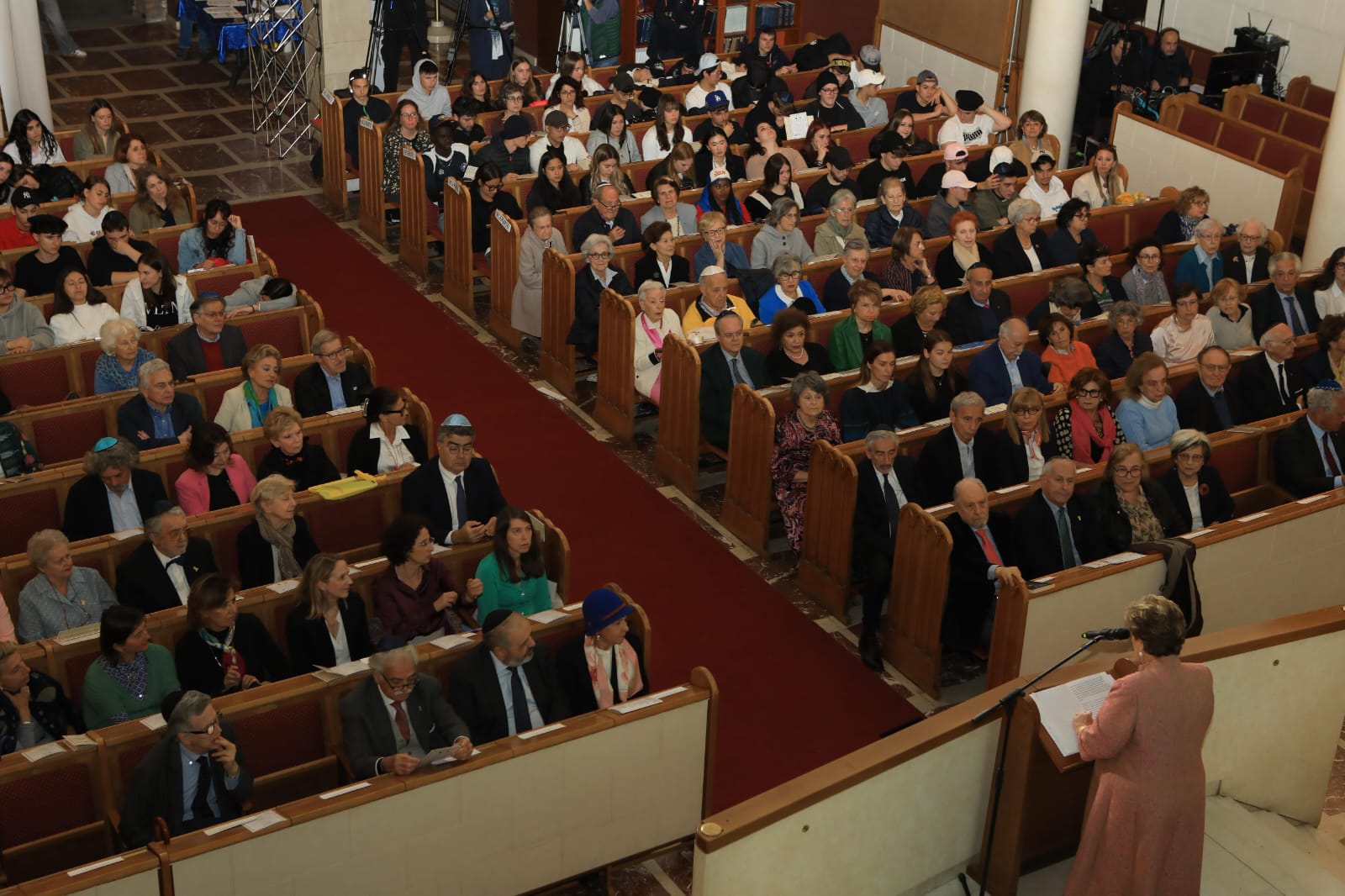MILAN – ADEI-WIZO Literary Prize, 25 years for Jewish culture

The 25th Literary Prize of the Association of Italian Jewish Women (ADEI-WIZO), named in memory of Adelina Della Pergola, celebrated its 25th anniversary on May 7 at the Central Synagogue in Milan. On this occasion, it renewed its founding mission: to give books the task of educating, narrating and returning complexity.
“The aim was to strengthen the path of inclusion, sharing and coexistence that the Jewish people has pursued and that is recognized as part of the progress of civil society,” said ADEI-WIZO’s national president, Susanna Sciaky, at the opening of the ceremony. Recalling the 80th anniversary of the end of the Second World War, Sciaky reflected on the role of culture and memory in light of the new explosion of antisemitism around the world: “We thought that the more we spread the memory of the Shoah, the less it could be denied. But here we are, wondering if it has helped at all. “
The laureates
To give Sciaky hope, the winning books of this 25th edition of the Della Pergola Literary Prize all focus on the value of transmitting memory: L’archivio dei destini (The Archive of Fates) by Gaëlle Nohant (Neri Pozza), which recounts the work of a woman in charge of returning to family objects that belonged to deportees, linking personal identity and collective history. For the youth section, the award went to Raffaele Genah for his Notturno libico (A Lybian Nocturne), a book inspired by the true story of Jasmine Mimun and Giulio Hassan – both present in the room – in Libya in 1967, between pogroms, persecutions and arbitrary arrests.
While Giulio was arrested and imprisoned for more than four years, Jasmin – then a young mother – faced assaults, threats and humiliation as she fought for his release, Genah remembered. “”Theirs is a story of love and resilience. Even though they were unable to communicate and separated by the prison, they were able to build a silent dialogue and eventually reunite. “
Culture against hate
Honorary guest of the ceremony was the journalist Antonio Caprarica, who recalled the moral duty, especially for Europe, to stand up against all forms of antisemitism, without ambiguity: “We have stopped teaching complexity. We have stopped teaching differentiation, and in this void the worst things blossom: hatred, prejudice, simplification. Literature, on the other hand, teaches us to think”.
These words are in line with those of the Chief Rabbi of Milan, Alfonso Arbib, who emphasized how the Jewish people have always been, “the people of books, not only because they have a founding Book, but because they have always written, even in the darkest times. Writing is an act of resistance, of study, of truth,” the Rabbi said. It is precisely this call to complexity, he added, that can contrast the banalisation of the present: “Reality is always complex. It is in the Middle East, and it is our duty to transmit this complexity, contrasting it with simplification and the presentation of history as if it were black and white.”
UCEI President Noemi Di Segni recalled that the theme of the next European Day of Jewish Culture, to be held on September 14, is “People of the Book”. “There isn’t a place in Italy that doesn’t breathe Jewish culture, and this is the only way we can regain trust in each other and feel safe,” she explained, recalling the enormous task carried out by Italian Jewish communities. Owners of more than 30,000 ancient volumes, they are continuing to catalogue and digitise them together with the Israel National Library and the National Library of Jerusalem.
Israel’s present and the role of literature
Demographer Sergio Della Pergola focused his analysis on Israel and the Middle East. Three “illusions”, he said, had been shattered after the massacres of October 7: the complete stability of Israel, the path of normalization with Arab countries, and the belief that the West had definitively overcome anti-Semitism. He warned: “Today, three fundamental rights are being denied to the Jewish people: equality, memory and sovereignty. Those who do this deny them their right to exist. “
The parterre of finalists was completed by Enrico Franceschini with La mossa giusta (The right move, Baldini+Castoldi), a novel about Jewish identity between totalitarianism and personal redemption; Raffaella Romagnolo with Aggiustare l’universo (Fixing the universe, Mondadori), a reflection on the fractures of history and the power of restoration; Tamar Weiss Gabbay, author of La meteorologa (The weatherwoman, Giuntina), which brings ecological responsibility and coexistence back to the center of the conversation in today’s Jewish society.
They all recalled the importance of giving shape to the memory of the past through reading. The theme was also explored by Eshkol Nevo, connected online from Israel, who received the special mention of the jury for Ties (Legami) (Feltrinelli). “In a society as hurt as ours, here in Israel, literature is therapeutic. It helps to express pain and sometimes even to soothe it,” he concluded.
Daniel Reichel
Translated by Chiara Tona and revised by Rebecca Luna Escobar, students at the Advanced School for Interpreters and Translators of the University of Trieste, trainees in the newsroom of the Union of the Italian Jewish Communities — Pagine Ebraiche.
